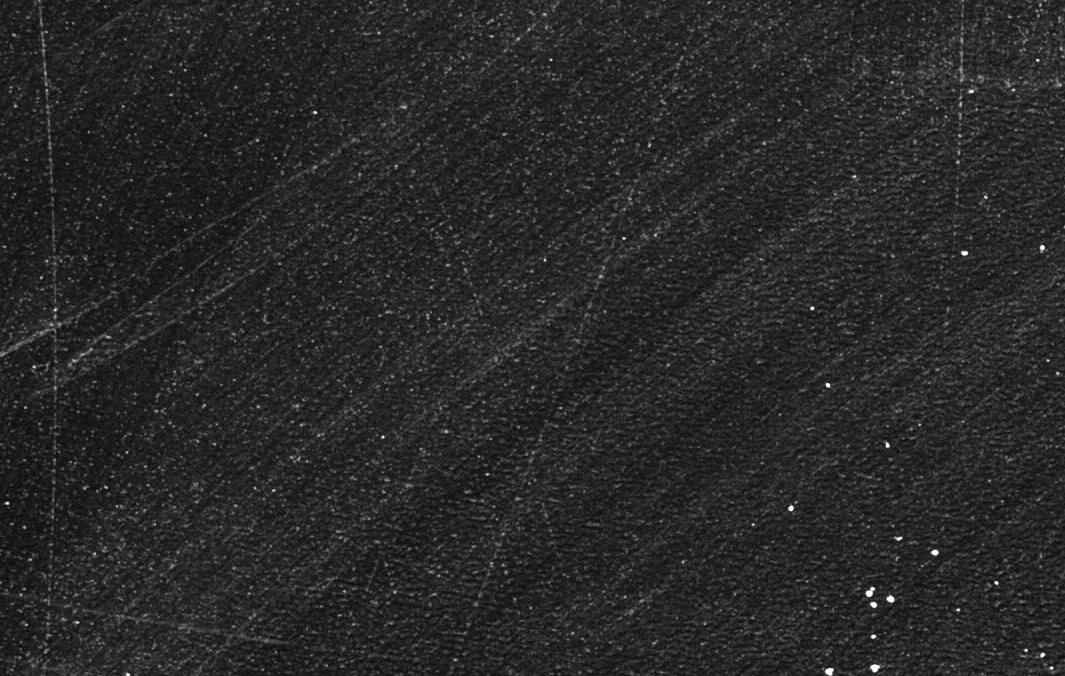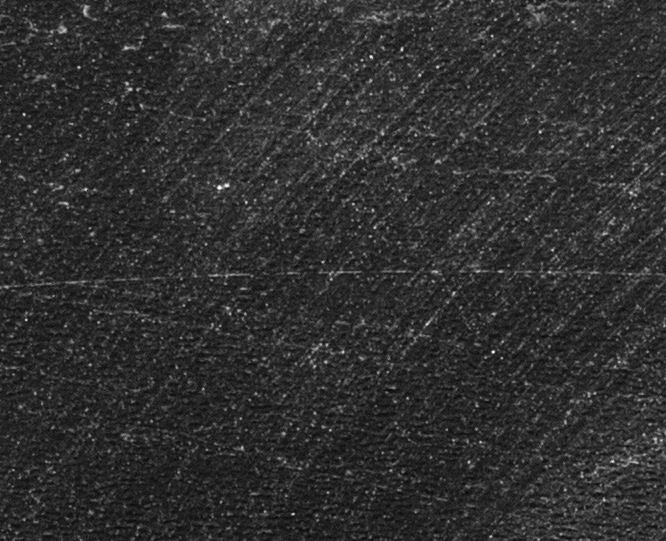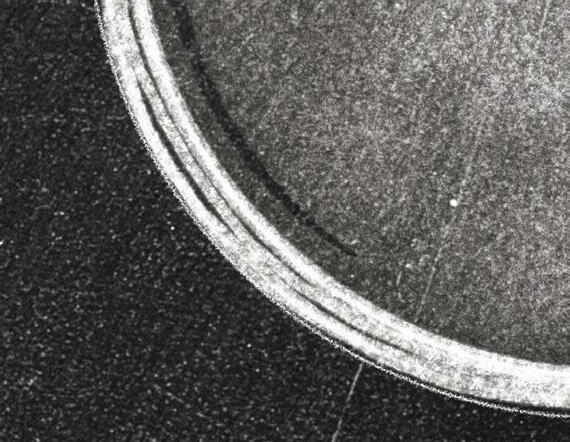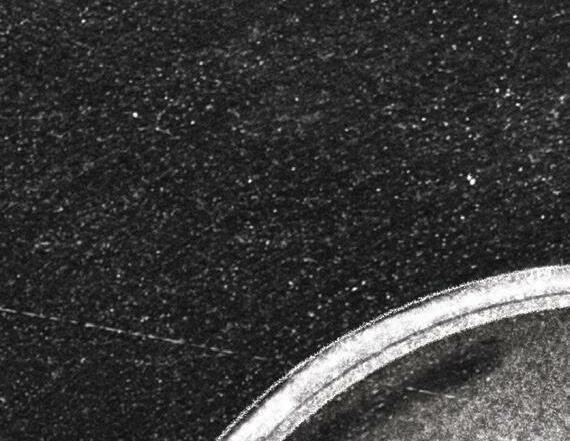

MAKE A DISCOVERY

Whether your dream is to become a medical doctor taking care of patients, a conservationist saving the planet, a forensic scientist analyzing criminal evidence, or a research scientist developing new technologies – our programs will help you reach your goals.

Studying science will allow you to deepen your understanding of the natural universe, hone technical laboratory skills, and develop the critical thinking skills needed to become an innovative researcher. Our biology, biochemistry, and forensic science programs provide rigorous academic experiences inside the classroom and laboratory, while also providing opportunities for professional growth through fieldwork, internships, and undergraduate research.
We welcome you to discover what makes our programs stand out and hope to see you in our classrooms soon.
All our best, Dr. Brad Bauer | Dr. Brian Jensen Co-chairs Department of Physical and Biological Sciences
DISCOVERY
Humblebrags
Internship opportunities at The New York State Department of Health, Regeneron Pharmaceuticals, and The Division of Criminal Justice Office of Forensics.
Undergraduate research grants with the opportunity to publish and present findings.
6 graduate school preparation tracks: Pre-Med, Pre-Vet, Pre-Dental, Pre-Physician Assistant, Pre-Occupational Therapy, and Pre-Physical Therapy.
Co-curricular experiences, including Natural Science Association, Minority Association for Pre-Medical Students, and Delta Delta Epsilon.
1 of only 6 Cold Case Analysis Centers in the United States (and the only one in New York State).
The Forensic Investigative Curriculum Program links forensic science students with mentors from the New York State Police Crime Laboratory System.
Take a
dive into our science programs
You don’t have to conduct an experiment to find out how you can thrive in these majors: expert faculty who teach both lectures and labs, programs that specialize in your interests, robust undergraduate research projects, a network of community members dedicated to your grad school or career goals, and the opportunity to participate in our Cold Case Analysis Center if forensic science is your thing.
We prepare the next generation of scientists — are you ready to make your discovery?

“Saint Rose’s program is innovative, vigorous, and resourceful. Professors are so willing and helpful; they make you feel from the very beginning that they truly want you to succeed. Professor Jokiel comes in on Saturday mornings to ensure that his students understand the class material and helps them with any trouble they may have. His organic and medicinal chemistry courses helped me realize that I wanted to pursue medicinal chemistry post-graduation, and when I needed guidance on what classes to take and which programs to look into based on what I wanted to do, he walked me right through it. Doing research under Professor Hallstrom has taught me critical lab techniques that have immensely prepared me for future employment. She took the time to help me improve my lab skills and expand my knowledge of different experimental procedures that can be applied to many future projects. This shows how the faculty at Saint Rose are dedicated to their students.”
MARIALUISA BERGHELA BIOLOGY’23

deepThe College of Saint Rose
Examine our programs
Put our biology program under a microscope





















FIND YOUR FOCUS:




Choose to concentrate in either cell and molecular biology or ecology/ environmental science, preparing you to meet grad school or career goals.
Cell and molecular biology:




For students interested in medicalrelated fields, biochemistry, molecular and cell biology, microbiology, genetics, animal biology, and other areas.
Ecology/environmental science:
For students interested in a field oriented degree that emphasizes how organisms interact with their environment.
BUILD BRIDGES:
Have your sights set on becoming a physical therapist or occupational therapist? We have articulation agreements with Russell Sage College to help you get on your career path faster.
SPEAKING OF CAREERS, HERE ARE SOME OPTIONS:
If you wish to continue your studies, our degree prepares you for graduate school in medicine, dentistry, veterinary science, and many other areas of science. You can go on to become an environmental specialist, research scientist, nutritionist, physician assistant, physical therapist, occupational therapist, or science teacher.
Find chemistry with our biochemistry program
GO TO A WHOLE NEW LEVEL:
Elevate your understanding of the chemistry of biology. You’ll learn about biological functions on a molecular and cellular level. Study proteins, carbohydrates, lipids, and nucleic acids (among other areas). Common topics include the regulation of metabolism, the molecular basis of genetics, chemiluminescence, and the methods by which drugs affect organisms.



GET ON TRACK:
You’ll take courses in microbiology, immunology, physical chemistry, cell biology, and organic chemistry.
SEE A WHITE COAT IN YOUR FUTURE?
The biochemistry major is an excellent choice for premedical, pre-dental,and preveterinary students.
HAVE GRAD SCHOOL IN MIND?
This program will set you up for graduate study in biochemistry, biology, or chemistry.
THINKING ABOUT THE WORKFORCE?
You can go on to find careers in allied health professions, biochemical research, industrial laboratories, forensics, and the chemical or pharmaceutical industries.
programs
Investigate our forensic science program
COMBINE YOUR PASSIONS:
With this program, you’ll study chemistry and biology alongside coursework in evidence, forensic assays, the court system, and other related topics.
NARROW YOUR INTERESTS: Choose from two tracks, either chemistry or biology, providing more courses in the area of your interest as well as flexibility in your career and/or graduate school options!
GET INTO IT:
You can intern at The Division of Criminal Justice Office of Forensics and many other local and regional laboratories.
WORK ON ACTUALCOLD
CASES:
Our Cold Case Analysis Center allows qualified forensic science students to work with local law enforcement agencies on real cold cases. Gain access to files, sort through the evidence, and work with the victims’ families.
RECEIVE EXTRA SUPPORT:
A dedicated forensic science advisor will help you throughout your academic career.
JOIN A NETWORK:
High-achieving forensic science majors have the opportunity to join the Saint Rose chapter of Delta Delta Epsilon, a forensic science honor society.
WHAT TYPE OF EQUIPMENT CAN YOU WORK WITH?
BIOLOGY MAJORS:
• Cell culture facility
• Cryostat

• Fluorescence microscopy






• Digital physiographs (digital data-acquisition hardware)









• Gel electrophoresis apparatus
• Micro-plate photometer (plate reader)
• Standard and quantitative (q) PCR machines
• YSI multimeter
BIOCHEMISTRY
AND FORENSIC
SCIENCE MAJORS:
• Nuclear magnetic resonance (NMR) spectrometer
• Comparison microscope
• Fourier transform infrared (FTIR) spectrometer with attenuated total reflection (ATR) attachment












• UV-VIS spectrometer
• Gas chromatograph (GC)
• Atomic absorption spectrometer
• High-performance liquid chromatography (HPLC)


What else?
OUR DOORS ARE ALWAYS OPEN:

Our faculty teach both lectures and labs, in small classroom settings, so you can receive one-on-one guidance and support from professors.
RESEARCH OPPORTUNITIES ARE ABUNDANT:
Attend conferences and present research, receive a grant to pursue a summer research project, get published in our annual Undergraduate Research Journal, and participate in a Collegewide Student Research Symposium. Students participating in research may be nominated for Sigma Xi, a research honors society.
THERE’S ALWAYS SOMETHING TO DO: Student science clubs and organizations, such as the Natural Science Association and Minority Association for Pre-Medical Students, provide you with networking and mentorship opportunities as well as hands-on learning outside of the classroom.
YOU’LL STAY WELL CONNECTED:
Our alumni organization, the Doctors’ Guild, is an association of professionals who provide networking and mentorship opportunities to undergraduate students interested in a career in medicine.
A Natural Science colloquium series introduces students to professionals in various scientific disciplines and alumni.
CHECK OUT THESE INTERNSHIP AND FIELDWORK OPPORTUNITIES:
• RNA Institute at University at Albany
• Wadsworth Center, New York State Department of Health
• Albany Pine Bush Preserve
• Office of Forensic Services, New York State Division of Criminal Justice
• Regeneron Pharmaceuticals
The College of Saint RoseFind out what our biology, biochemistry, and forensic science alumni are up to


“The science curriculum at Saint Rose prepared me well for a career in forensic science. The small class sizes and availability of the professors and their candid feedback provided the support and confidence I needed to pursue my career.”

 Jennifer Busk ’16
Jennifer Busk ’16

MS, Forensic Science (University of New Haven) Forensic scientist in trace evidence, Georgia Bureau of Investigation, Atlanta area

“Saint Rose provided me with copious opportunities that allowed me to delve deeper into my interests and discover my passions beyond academics. I received continuous support throughout my four years from the faculty in the science department, which has extended past graduation. I credit the commitment displayed by the faculty to not only educate but to challenge their students, toward my academic and personal accomplishments.”
Nia Brown‘20, MPH State University of New York Upstate Medical University, first-year med student

“Whenever you’re dealing in science, whatever policy or program you’re working with, you’re trying to elevate to the forefront of awareness. Education is really the beginning of that process. Saint Rose, from the early onset of my career to now, provided me a platform that allowed me to become elevated.”
Tim McAuley ’01, U.S. Navy (Ret.)
Ph.D., Environmental Science And Engineering (Clarkson)

Founder and owner of Change Environmental LLC, Saratoga Springs, New York
“The College of Saint Rose has helped me achieve my goals by instilling my passion and knowledge in forensic science. As a result of direct instrumental use as well as conceptual knowledge, I have gained the confidence needed to ensure my analytical work is always precise and accurate. Through Saint Rose, I was able to find my calling in forensic toxicology and have been servicing the community through scientific work ever since.”
Jeremy Peralta ’15
Study director, WuXi AppTech, a global pharmaceutical, biopharmaceutical, and medical device company
Talking big about microbiology
WITH ASSISTANT PROFESSOR OF MICROBIOLOGY DR. KELLY HALLSTROMThe science faculty at Saint Rose are dedicated to helping students develop into successful scientists. Our goal is to make sure all of our students leave Saint Rose with the skills necessary to pursue their next steps, whether that be pursuing graduate studies, working in a laboratory, or entering the medical field. We enjoy the small class sizes because this allows us to get to know our students better and helps us advise them in ways that set them up for success after they graduate from Saint Rose. The science faculty also represent a range of disciplines in the sciences, which means students have many opportunities to pursue independent research projects in a topic they are interested in.
The two areas of research that have been most popular have been on the oral microbiome and examining bacterial growth on microplastics. Students have looked at variability in the types of normal oral bacteria and have examined ways to limit the growth of oral bacteria that can lead to the formation of cavities. Students working on microplastics have examined samples of water from their hometown and from areas of water in and around Albany for microplastics and bacteria growing on them. I plan to keep the microplastic project running as a long-term project for students to join in on but am always excited to hear what ideas students have for projects.

Students like the chance to handle and study bacteria, which is a unique part of this class. Although finding small bacterial cells can be challenging, students really like being able to find them under the microscope and seeing how different species of bacteria look and move. Many times I’ve heard students exclaim, “That looks so cool!” when they’ve found the bacteria they were looking for.

What makes Saint Rose a great environment to study the sciences?
What do students enjoy about studying microbiology?
What types of undergraduate research opportunities are available to students who are interested in microbiology?
How can students apply what they learn in General Microbiology to their grad school goals or career opportunities?
The great part about any of our science courses is that they provide students with the opportunity to learn the critical thinking and hands-on skills they need to be successful in their next step after Saint Rose. Students who take General Microbiology learn skills that set them up for success in an academic, medical, or biotech research lab.

What is it about microbiology that is so fascinating and fun to study?
Although we can’t see them with our eyes alone, microbes are incredibly important to us and to the environment. For example, we know bacteria can make us sick, but most bacteria that we come in contact with are harmless or offer us a benefit. The human microbiome is a great example of this. We used to think the microbiome was composed just of bacteria, but better studies have shown that many other types of microbes are present, too, including fungi and even some types of viruses.

These microbes do more than help us digest food; they help protect us from pathogenic microbes in many ways, including helping to ensure our
immune systems develop properly. It’s fascinating to think that without these good microbes around, we would have a much harder time fighting off the pathogenic microbes.
How do you apply what’s happening in the real world, such as the pandemic, to your classroom teachings?
I highlight examples of current research that is being done on topics that come up in class. This helps students understand the broader applications of microbial biology to real scientific problems. It also helps personalize science and reminds us that scientists are people! When there is a current microbe in the news, say SARS-CoV-2 (i.e., COVID-19), or a bacterial pathogen associated with an outbreak in food, I work those microbes into the class discussions or highlight them as examples of specific types of microbes so that we can dive into their biology.
Why do you like teaching this microbiology?
I enjoy teaching this course because it’s impossible to teach it the same way every year. The field of microbiology changes rapidly, and there is always something new or different to pay a little extra attention to. One year it may be the microbiome, another year it may be the use of bacteria for bioremediation.

Who should take General Microbiology and why?
Everyone should learn about microbes! Students who are interested in health get the opportunity to learn about the basic biology of microbes and how our bodies respond to pathogens. Students who are interested in environmental science get to learn about how microbes survive in extreme environments, and how they help cycle nutrients in ecosystems. Students who are interested in biology in general gain a broad range of knowledge about the microbes that are around us and in us and truly impact many aspects of our everyday lives.
Undergraduate Research Award, Dabagian took second place. but a select group is chosen. Maybe you’re next?


Theory in Action
Check out the ways we make learning come to life at Saint Rose
Connect with real forensic scientists


The Forensic Investigative Curriculum Program, also known as FIC School, provides undergraduate students at Saint Rose with a unique opportunity to meet and learn directly from forensic professionals from the New York State Police Crime Laboratory System. The partnership empowers forensic science students to seek out mentors and learn what a career in forensic science is all about and provides them with a tour of the NYSP Forensic Investigation Center in Albany.
Make a difference through research

In her senior year, biochemistry major Jada Davis spent lab time analyzing local soil samples to identify natural antimicrobials as part of the international Tiny Earth project. The project aims to address the decline in antibiotic development by the pharmaceutical industry, as new antibiotics are needed to combat treatment-resistant bacteria.






“Knowing that soil is all around us and seeing the diversity among the colonies from just one small soil sample shows me that there is still so much to learn about microbes and how they can help us in the fight against antibiotic resistance,” Davis said. “Whenever I remember that those relatively simple experiments can contribute to helping a serious problem, I remember there are ways we can all contribute to helping solve issues that the world is facing.”

